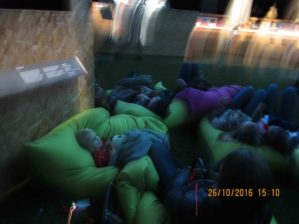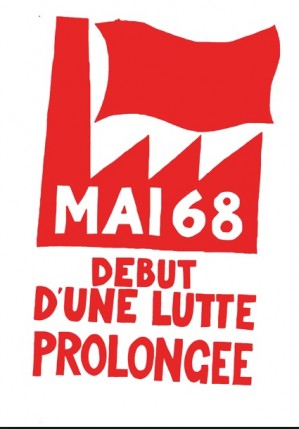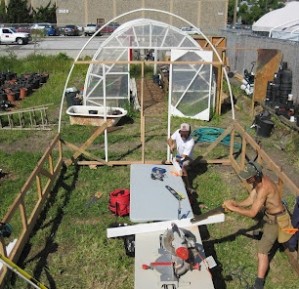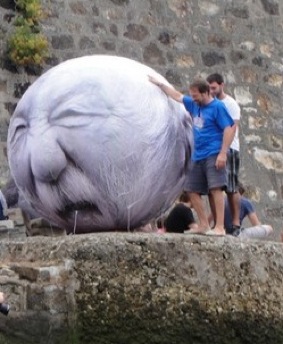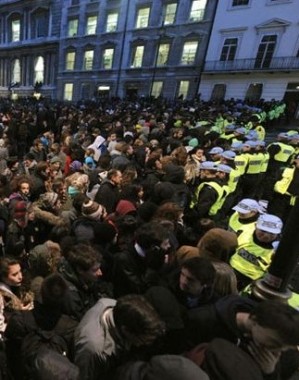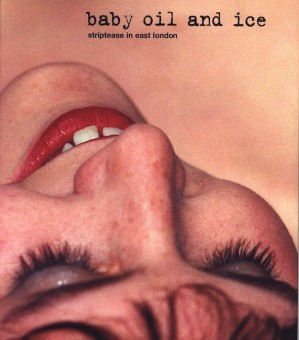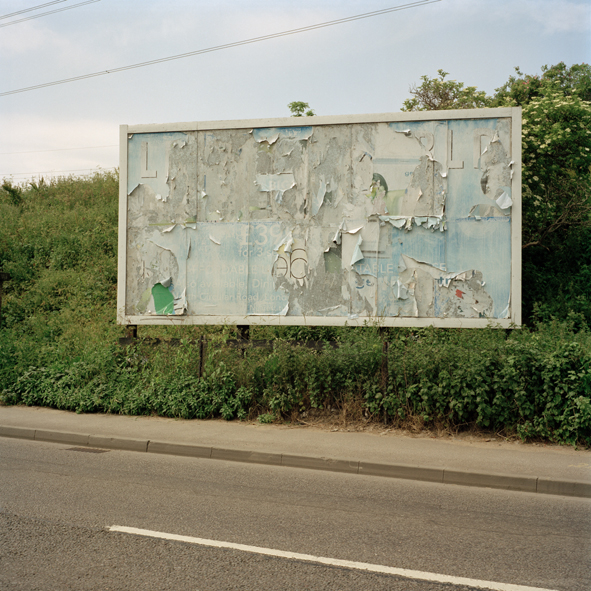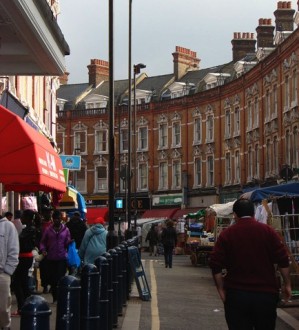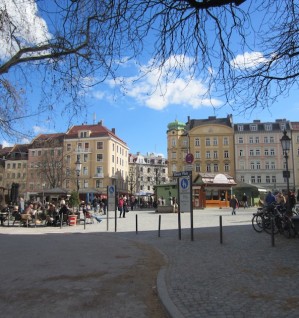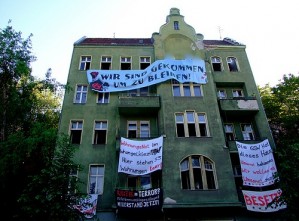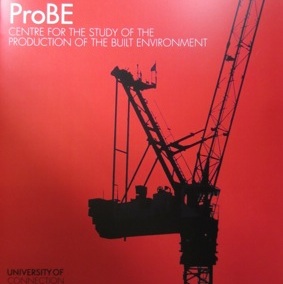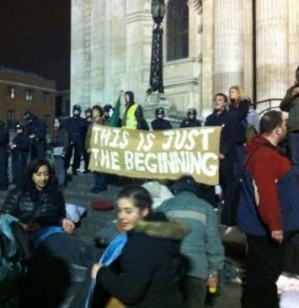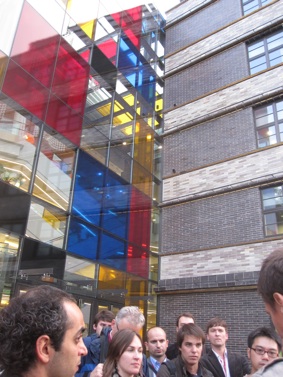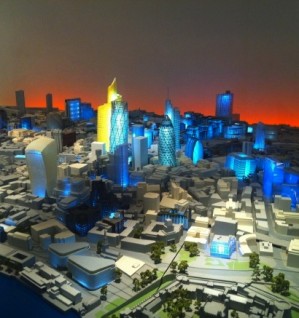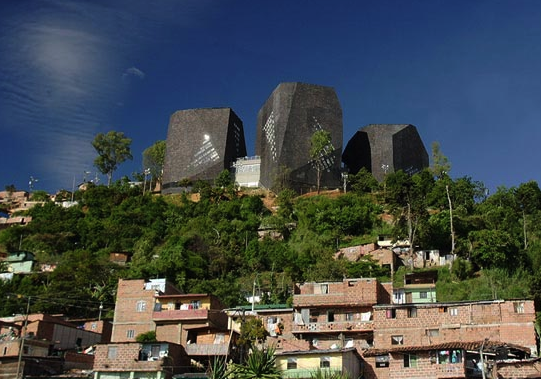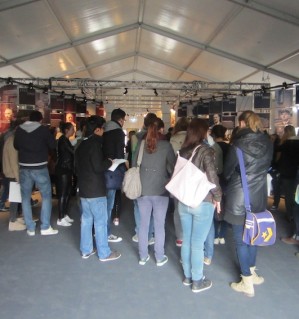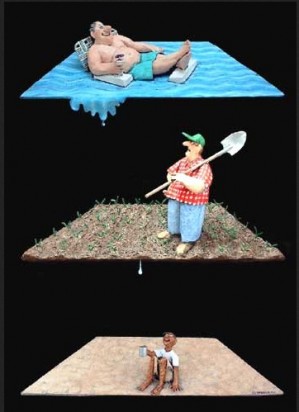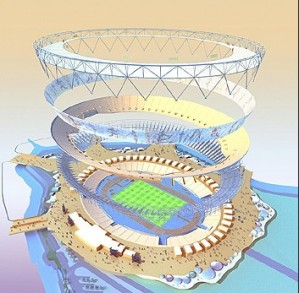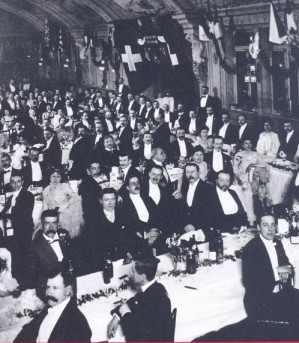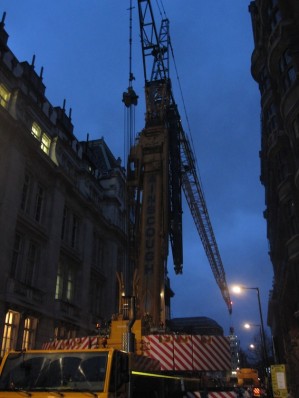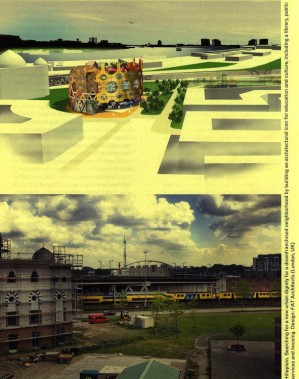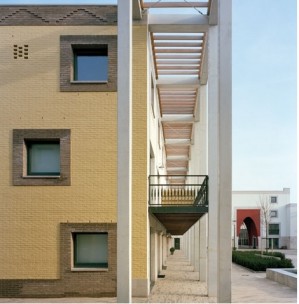-
Revolution at the V&A (p6)
“Never doubt that a small group of thoughtful committed citizens can change the world” This quote from the nineteen-sixties by Margaret Mead was greeting visitors to the Revolution exhibition, currently at the Victoria and Albert Museum in London. It is an encouraging thought in our times of globalisation, dominated by corporations with turnovers well above […]
-
Revolution – Almost But Not Quite
Two aspects came to mind from the conversation between the translator Donald Nicholson-Smith and the art historian Timothy J Clark: one was the challenge of ‘translation’, the other the revival of interest in ’68. Transposition The occasion was Nicholson-Smith’s new English translation – ‘The Revolution of Everyday Life’ – of the “Traite de savoir-vivre a […]
-
OC 49: Openness through Cooperation
Openness: a construct of social relations Openness of cities can be understood literally as spaces and places open to all. At a theoretical level, urban thinkers are construing openness of cities as the outcome of social relations which, in turn, are influenced by the dynamic of urban change. These notions were conceptualised around May ’68, […]
-
OC 46: Are Cities Open for Age?
Fear of Age A major scare story reinforced by the lack of recovery from the banking disaster is built around the fact that societies in the developed world are aging. The England and Wales 2011 census data just published confirms that people are living longer and they start to make more babies. Migration is the […]
-
OC 39: Openness and the Fear Industry
Now that the tears over 9/11+10 are drying up, what happens to the ‘fear industry’? Fired by the war on terror it is doing really well. The surveillance and anti-terror industry has mushroomed and is well under way of becoming too big to fail. In the name of war on terror, states have restricted civil […]
-
Open Cities 28 Limits to Openness
Does Urban change mean displacement? Cities are constantly changing and this is understood as a sign of their dynamic, their ability to generate wealth and wellbeing. Arguably, open cities are those where the highest benefits of change are reaching the largest amount of people, throughout social class, economic status, gender, ethnicity or faith. Urban regeneration […]
-
Open Cities 20 Redressing Asymmetry
The reason why ‘Open Cities’ is an object of debate is that many urban dwellers are questioning its reality. One way of reaching a judgement is to objectivise ‘openness’ of cities. Another is resistance to asymmetry of uninhibited access to the city. The former is pursued by the British Council which is supporting the development […]
-
Open Cities 3 The Case of London
Open Cities 3 The Case of London Openness or diversity? London is by far the largest city of the European Union and arguably the most diverse in terms of its population, economy and cultural characteristics. How does London fare with openness though? A diverse city does not necessarily mean an open city The Open Cities […]
-
OC 57: Munich observed afresh
Imperial traces No matter how long ago and for how long a city has been a seat of domination, no matter how often its power has waxed and waned, a presence of its historic glory remains unmistaken. Munich is one such historic seat of power, wealth and might. The biased eyes of an urbanist will […]
-
OC 55: “Legalities of Space”: from squatting to tolerated occupation
Right to land Controversies over ‘legalities of space’ affect a wide variety of peoples. ‘IdleNoMore’ supports the struggle of first nations for what they believe to be their immutable right to their land and their way of life (see the previous post OC 54). Such controversies take many different forms in diverse circumstances. On […]
-
OC 48: About the ‘City Makers’
This is about the unsung ‘makers of the city’: the builders who are erecting the visions of designers for lucrative earnings of investors and developers; those who are producing more or less open spaces for eventual users. ProBE The Centre for the Study of the Production of the Built Environment (ProBE) has been set up […]
-
OC 42: Open City – Open Mind
At a crossroads For reasons unexplained, I have always marked the arbitrary change in time, the passage from one western calendar year to the next, with a message to my trans-spatial diaspora of family, friends and colleagues. This lone drawing of the year is supposed to express the passage of time in a landscape of […]
-
Open Cities 35 Open Cities – Open Minds
Diversity: driver of openness Have a look at the EU map. It is almost entirely ‘blue’ and the remainders, e.g. Spain and Portugal, are bound to follow in that direction after elections. This has never happened before even when the EU was a small community with only a handful of member states. The emergence of […]
-
Open Cities 27 Openness: The Big Picture
Openness and tolerance What one tends to understand intuitively by ‘Open City’ is tolerating one’s neighbours from hell and their outlandish lifestyles, mobilising equal opportunities at work, improving equality in schools, or sharing the public realm with a pluri-icultural society in a deprived inner urban area. Yet openness is not just about what individuals can […]
-
Open Cities 10 Opening up Medellin
Open Cities 10 Opening up Medellin What has transformed the crime capital of the world into a place of hope and expectation? Until recently, Medellin, the second city of Colombia in Latin America was the antithesis of an open city. No go areas and gun homocides were the highest in the world. Curbing crime It […]
-
Franco German Friendship
European heritage In the heart of Munich a marquee was erected in front of the Italianating loggia façade of the Feldherrnhalle (Field Marshalls’ Hall), a monumental building with military connotation. Perhaps not the most appropriate backdrop for the commemoration of the Anglo German Elysee Treaty of friendship signed by Adenauer and de Gaulle fifty years […]
-
OC 50: East London Transformations
After the games Now that the London Olympic Games have closed their doors and a fence has been re-erected around the whole site it may be a good time to reflect on what urban transformations lie in stall for the East End. The third European Urban Summer School (EUSS), initiated by the Association of European […]
-
OC 47: City Open to Olympics
The Games have arrived It is not possible to live in London and ignore the Olympic Games 2012. Even less not to have an opinion about them and what they do to London as a place to live, work and play. As usual, officialdom claims that it is either too early or too late and […]
-
OC 41: Place and Identity
The bells are back 27 of them; on The reinstated Glockenspiel in Swiss Court, central London. Crowned by an astronomical clock, repaired and electronically enhanced they accompany the movements of cows and their keepers to the amusement of bystanders. The Glockenspiel was first installed as a symbol of friendship between the Swiss colony in central […]
-
Open Cities 31 Maintaining Cities Open
A lot has been written about cities and their ties with people. Lineu Castello’s ‘Rethinking the Meaning of Place’ (Ashgate 2010) is one of the most comprehensive literature reviews of how human beings interact with their built environment I have come across (more of that in a later post). He provides the big picture and […]
-
Open Cities 25 “IABR Open City”
“Open City” seems to have entered public consciousness as this name tag has been adopted for many diverse purposes. One example is the UK opencity website which invites everyone to chat about their city, initiate exchanges, participate in discussion forums, look for jobs, accommodation as well as any other goods, communicate among students or obtain […]
-
Open Cities 5 About intercultural coexistence
Open Cities 5 About intercultural coexistence OpenCities Spot Check Among the OpenCities partners Dublin is holding a festival of world cultures and Bukarest is providing more equal opportunities for its Roma population. Madrid has celebrated World Day for Cultural Diversity and Dialogue and Development, supports its multicultural character and is fostering its social and intercultural […]

